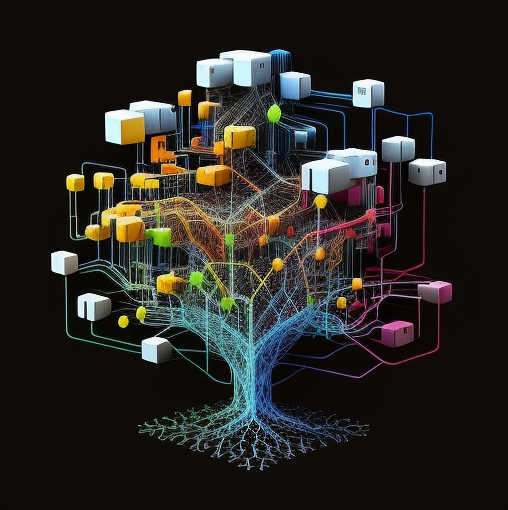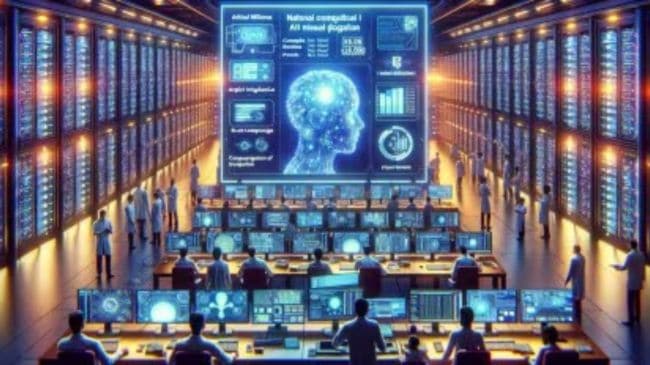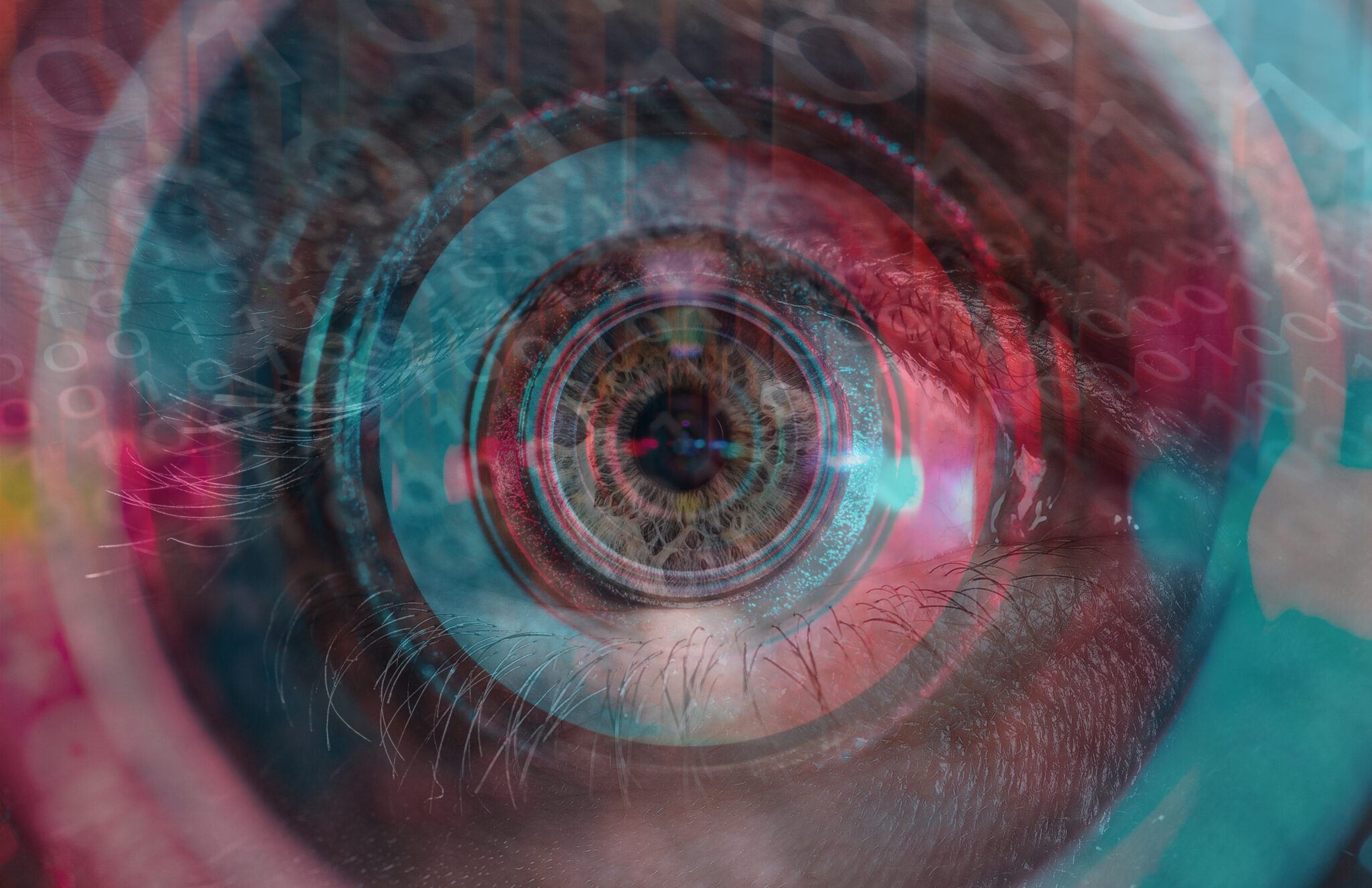Introduction to Deep Learning
Deep learning refers to a subset of machine learning algorithms that mimic the workings of the human brain’s neural networks. It involves training artificial neural networks on vast amounts of data to recognize patterns, make predictions, and perform complex tasks. Deep learning has revolutionized various fields, including computer vision, natural language processing, robotics, and healthcare.
Online Courses for Deep Learning
Coursera – Deep Learning Specialization
Coursera offers a comprehensive Deep Learning Specialization, created by deeplearning.ai, co-founded by Andrew Ng, a renowned figure in the field of AI. This specialization consists of five courses that progressively cover the fundamentals of deep learning, convolutional neural networks, recurrent neural networks, and sequence models. By completing this specialization, you’ll gain a solid understanding of deep learning architectures and practical experience through hands-on assignments and projects.
Udacity – Deep Learning Nanodegree
Udacity’s Deep Learning Nanodegree program provides an in-depth curriculum designed to equip learners with the skills needed to apply deep learning techniques effectively. This program covers topics such as neural networks, convolutional neural networks, recurrent neural networks, and generative adversarial networks. With real-world projects and personalized feedback from experts, the Deep Learning Nanodegree offers a practical approach to mastering deep learning concepts.
edX – Deep Learning Fundamentals
edX offers the Deep Learning Fundamentals course, which is ideal for beginners seeking a solid foundation in deep learning principles. This course covers essential topics like neural networks, optimization algorithms, and convolutional neural networks. Through a combination of video lectures, hands-on exercises, and quizzes, you’ll gain a clear understanding of the core concepts and practical applications of deep learning.
Books for Deep Learning
“Deep Learning” by Ian Goodfellow, Yoshua Bengio, and Aaron Courville
Considered the go-to reference for deep learning, “Deep Learning” by Ian Goodfellow, Yoshua Bengio, and Aaron Courville provides an extensive overview of the subject. The book delves into the fundamental concepts of deep learning and covers topics such as deep neural networks, optimization, and generative models. With comprehensive explanations and code examples, this book serves as an invaluable resource for both beginners and experienced practitioners.
“Hands-On Machine Learning with Scikit-Learn, Keras, and TensorFlow” by Aurélien Géron
While not exclusively focused on deep learning, “Hands-On Machine Learning with Scikit-Learn, Keras, and TensorFlow” by Aurélien Géron offers a practical approach to implementing deep learning models using popular frameworks. The book covers various topics, including neural networks, convolutional neural networks, and recurrent neural networks. With hands-on examples and real-world projects, this book enables you to develop a strong understanding of deep learning concepts in a practical manner.
Tutorials and Documentation
TensorFlow’s Official Documentation
TensorFlow, one of the leading deep learning frameworks, provides comprehensive documentation and tutorials to help users get started with deep learning. The official documentation covers various topics, including installation, basic usage, and advanced techniques. Additionally, TensorFlow offers tutorials on specific applications like image recognition and natural language processing, allowing you to explore deep learning in specific domains.
PyTorch Tutorials
PyTorch, another popular deep learning framework, offers extensive tutorials on its official website. These tutorials cover a wide range of topics, from basic tensor operations to building complex deep learning models. With step-by-step explanations and code examples, PyTorch tutorials provide a hands-on learning experience, enabling you to understand and implement deep learning algorithms effectively.
Deep Learning Frameworks and Libraries
TensorFlow
TensorFlow, developed by Google, is a versatile deep learning framework widely used in both academia and industry. It provides a flexible and scalable platform for building and deploying deep learning models. TensorFlow’s extensive ecosystem includes libraries, tools, and pre-trained models, making it a comprehensive resource for deep learning practitioners.
PyTorch
PyTorch is a dynamic deep learning framework that emphasizes simplicity and flexibility. It has gained popularity due to its intuitive interface and efficient computation capabilities. PyTorch allows users to define and train deep learning models using a Pythonic syntax, making it an excellent choice for researchers and developers seeking flexibility and ease of use.
Keras
Keras is a high-level deep learning library that runs on top of TensorFlow, Theano, or Microsoft Cognitive Toolkit. It provides a user-friendly interface and abstraction layers, enabling rapid prototyping and experimentation. Keras simplifies the process of building and training deep learning models, making it an ideal choice for beginners and researchers focusing on fast development cycles.
Practical Applications of Deep Learning
Image Recognition and Classification
Deep learning has made significant advancements in image recognition and classification tasks. Convolutional neural networks (CNNs) have revolutionized computer vision by achieving state-of-the-art performance in tasks like object detection, image segmentation, and image recognition. CNNs can learn intricate patterns and features from images, enabling applications such as autonomous vehicles, medical imaging, and facial recognition systems.
Natural Language Processing (NLP)
Deep learning has also made significant contributions to natural language processing tasks. Recurrent neural networks (RNNs) and transformer models have proven effective in tasks like language translation, sentiment analysis, text generation, and question-answering systems. NLP applications powered by deep learning have improved machine translation, voice assistants, chatbots, and text summarization.
Speech Recognition
Deep learning has played a crucial role in advancing speech recognition technology. Recurrent neural networks and convolutional neural networks combined with recurrent layers (CRNN) have improved the accuracy of automatic speech recognition systems. Deep learning-based speech recognition has enabled applications like voice assistants, voice-controlled devices, and transcription services.
Conclusion
Deep learning is an exciting field that offers immense opportunities for those interested in AI and machine learning. By leveraging the power of neural networks and deep architectures, you can solve complex problems, make accurate predictions, and unlock innovative applications across various domains. The resources mentioned in this article, including online courses, books, tutorials, and frameworks, will equip you with the necessary knowledge and skills to embark on your deep learning journey successfully.
Remember, deep learning requires continuous learning, practice, and hands-on experience. Stay updated with the latest research, explore real-world projects, and engage with the deep learning community to enhance your expertise and stay at the forefront of this rapidly evolving field.









Leave a Reply